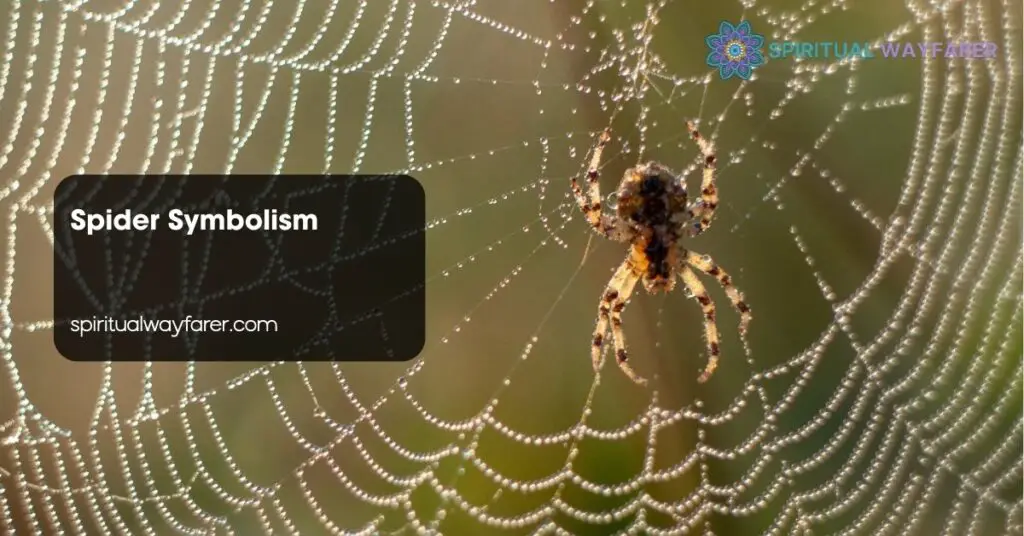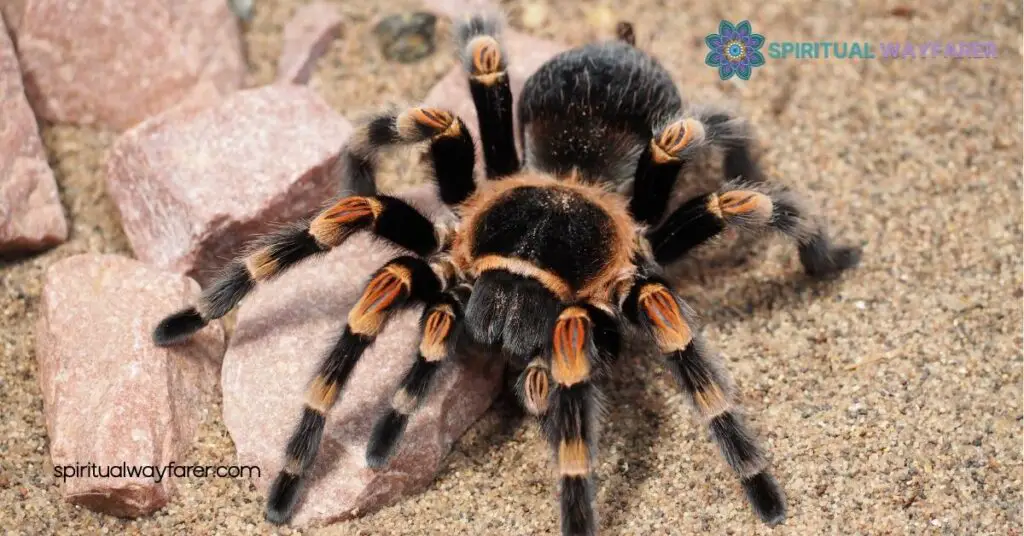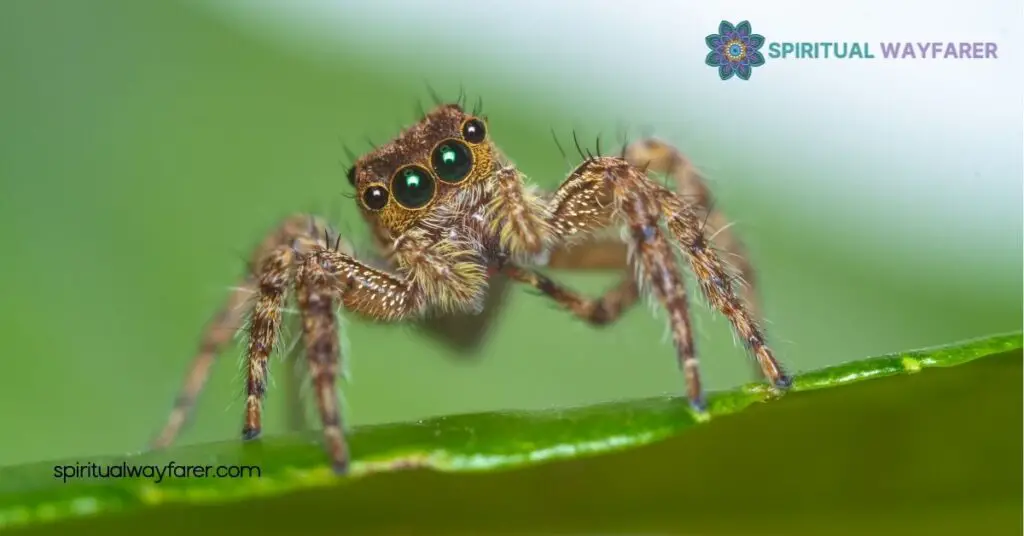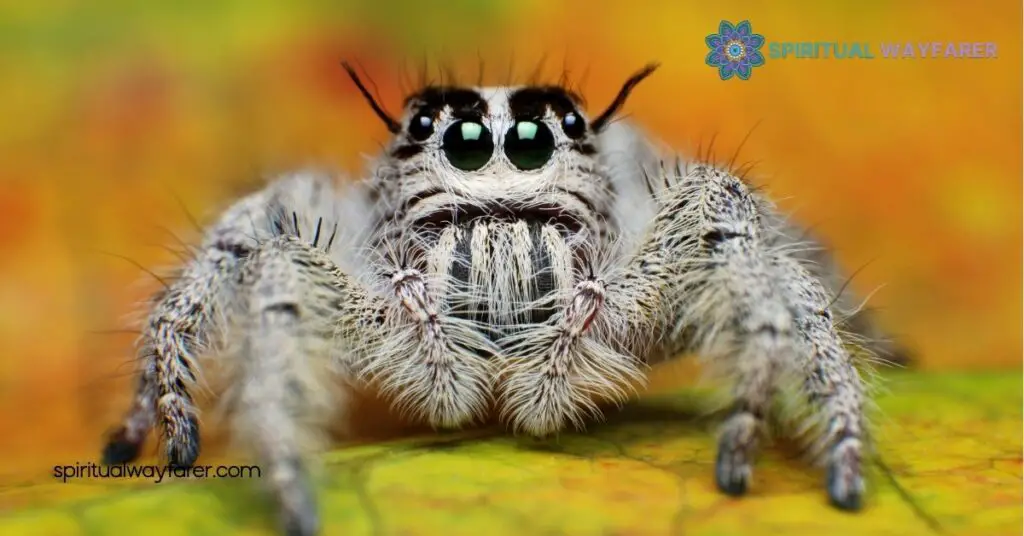Spiders have woven their way into the fabric of our cultures and dreams, symbolizing everything from creativity to mystery. We find them lurking in folklore, art, and even our subconscious, each thread telling a unique story. Their intricate webs remind us of the delicate balance between chaos and order in our own lives.
As we investigate into spider symbolism, we’ll uncover how these eight-legged creatures embody transformation, patience, and resilience. Whether seen as omens or guardians, spiders invite us to explore deeper meanings and connections. Join us on this fascinating journey to understand the powerful messages spiders convey and how they resonate with our personal and collective experiences.
Definition And Meaning Of Spider Symbolism
Spider symbolism represents a multifaceted array of concepts across different cultures. We recognize spiders as icons of creativity, their intricate webs illustrating artistic expression and ingenuity. Mystery is another facet, as spiders often embody the unknown and the enigmatic aspects of life. Transformation is evident in the spider’s ability to regenerate and adapt, symbolizing personal growth and change. Patience is reflected in the spider’s meticulous web-weaving process, highlighting the importance of persistence and careful planning. Finally, resilience is portrayed through the spider’s survival skills, demonstrating strength and adaptability in various environments.
| Symbolic Aspect | Meaning | Example |
|---|---|---|
| Creativity | Artistic expression | Intricate web designs |
| Mystery | Enigmatic and unknown elements | Spiders in folklore myths |
| Transformation | Personal growth and change | Molting and regeneration |
| Patience | Persistence and careful planning | Web-weaving process |
| Resilience | Strength and adaptability | Survival in diverse environments |
These symbolic meanings are deeply embedded in folklore, art, and psychological interpretations, emphasizing spiders as powerful symbols of balance between creation and destruction, order and chaos.
Historical Perspectives
Greek Mythology
In Greek mythology, spiders embody creativity and the repercussions of arrogance. The tale of Arachne highlights this symbolism; Arachne, a skilled mortal weaver, dared to challenge Athena, the goddess of wisdom and crafts. Her intricate tapestry, which portrayed the gods unfavorably, incited Athena’s wrath. So, Arachne transformed into a spider, destined to weave indefinitely. This story not only explains the origin of the term “arachnid” but also emphasizes the spider’s link to artistry and the dangers of hubris.
Native American Cultures
Within Native American traditions, spiders represent wisdom and creative ingenuity. The Hopi people honor Spider Grandmother, a revered figure responsible for humanity’s creation and the imparting of weaving skills. Spider Grandmother symbolizes the sacredness of craftsmanship and the intricate connections within the community. Also, spiders are often seen as tricksters or wise elders, reflecting their roles in teaching and guiding through their complex web structures.
Cultural Interpretations
Spider symbolism varies widely across different cultures, reflecting unique beliefs and values. We explore how diverse traditions interpret the significance of spiders.
Spider Symbolism In Different Cultures
Native American tribes revere spiders as creators and weavers of fate. The Grandmother Spider, especially among Southwestern tribes, serves as a guardian and teacher. She highlights the interconnectedness of all living beings and the essential role of feminine energy in maintaining cosmic balance. In African folklore, spiders embody wisdom, resourcefulness, and adaptability. The trickster god Anansi imparts life lessons through clever tales, demonstrating the importance of intelligence and cunning. Also, spiders are viewed as bringers of rain, crucial for agriculture and survival.
Mythological Representations
Mythologies worldwide feature spiders as powerful symbols. In African stories, Anansi the spider plays a central role, using his wit to overcome challenges and teach valuable lessons. Native American legends depict spiders as master weavers, crafting the fabric of life and destiny. These narratives emphasize the spider’s role in creation and the maintenance of order. Such mythological representations underscore the spider’s significance in demonstrating creativity, intelligence, and the balance between chaos and harmony.
Psychological Significance
Spiders often symbolize intricate aspects of the human psyche. They represent creativity by embodying the ability to design and construct complex structures, much like their webs. This parallel highlights our own capacity for innovative thinking and problem-solving. Also, spiders signify patience, reflecting the meticulous nature required to achieve personal goals. Their methodical web-building process serves as a metaphor for deliberate and sustained effort in our lives.
Fear and anxiety are also linked to spider symbolism. Common phobias surrounding spiders illustrate deeper psychological fears, such as the unknown or loss of control. Conversely, overcoming a fear of spiders can symbolize personal growth and resilience. Spiders remind us of the balance between fear and fascination, encouraging us to explore and master our inner fears.
Besides, spiders embody transformation. Their ability to regenerate parts of their bodies parallels human experiences of healing and self-improvement. This symbolism reinforces the concept that change is a natural and essential part of personal development. By understanding spiders as symbols, we gain insights into our own behaviors, motivations, and emotional states.
| Psychological Aspect | Symbolism Description |
|---|---|
| Creativity | Ability to design and construct complex structures |
| Patience | Meticulous nature required to achieve personal goals |
| Fear and Anxiety | Represents deeper psychological fears and control |
| Personal Growth | Overcoming fears and building resilience |
| Transformation | Regeneration and healing as part of self-improvement |
Spiders also reflect the interconnectedness of our thoughts and actions. Their webs symbolize the complex web of relationships and experiences that shape our mental industry. By analyzing spider symbolism, we can better understand the connections between different aspects of our psyche and how they influence our behavior and emotions.
Symbolism In Literature And Art
Creativity and Weaving
We associate spiders with creativity and weaving in literature and art. The Greek myth of Arachne exemplifies their connection to artistic skill. Arachne’s transformation into a spider underscores the importance of craftsmanship in storytelling. Native American and Hindu traditions also depict spiders as symbols of creativity and the ability to weave life’s threads. Their intricate webs act as metaphors for artistic creation and storytelling.
Feminine Power and Ingenuity
Besides, spiders represent feminine power and ingenuity. In feminist art, spiders signify feminine creativity and patience. Artists like Louise Bourgeois incorporate spider imagery to symbolize maternal strength and reclaim feminine power. The spider’s methodical web construction reflects the resilience and creativity inherent in feminine energy.
Positive And Negative Connotations
Positive Connotations
Creativity and Feminine Energy
Spiders embody creativity and feminine energy, symbolizing the creative force that weaves life’s designs and fate. In Greek mythology, Arachne’s story emphasizes creativity and transformation[^2][^5].
Balance and Interconnectedness
Balance and interconnectedness are represented by spiders. Their intricate webs illustrate the connections between experiences, relationships, and spiritual journeys, highlighting life’s interconnected nature[^1][^3].
Protection and Wisdom
Protective and wise, spiders feature in several traditions as symbols of protection and wisdom. Their webs signify safe spaces and ward off negative energy or harmful spirits.
Negative Connotations
Fear and Danger
Even though positive symbolism, spiders often evoke fear and represent danger. Their predatory instincts and association with venomous species contribute to this perception.
Deception and Trickery
Spiders also symbolize deception and trickery. In various folklore, their ability to entangle prey mirrors ideas of manipulation and deceit.
Bad Omens and Darkness
Besides, spiders can indicate bad omens and darkness. Their nocturnal behavior and elusive nature associate them with mystery and uncertainty, sometimes symbolizing hidden fears or unsettled emotions.
[^1]: Source for Balance and Interconnectedness.
[^2]: Source for Creativity and Feminine Energy.
[^3]: Additional source for Balance and Interconnectedness.
[^5]: Source for Arachne in Greek mythology.
Conclusion
Spiders weave a rich tapestry of meanings that resonate deeply across cultures and our personal lives. Their intricate symbolism highlights our innate creativity resilience and ability to navigate complexity. By exploring spider symbolism we connect with universal themes of transformation patience and interconnectedness. These remarkable creatures inspire us to reflect on our own journeys and embrace the balance between order and mystery within us.
Frequently Asked Questions
What is the symbolism of spiders in various cultures?
Spiders symbolize creativity, wisdom, transformation, patience, and resilience across different cultures. In Greek mythology, spiders represent creativity and the consequences of arrogance, as seen in the story of Arachne. Native American tribes view spiders as creators and weavers of fate, embodying wisdom and interconnectedness. In African folklore, spiders like the trickster god Anansi symbolize resourcefulness and teach life lessons. These diverse interpretations highlight the spider’s role in creation, order, and personal growth.
How do spiders represent creativity and artistic expression?
Spiders embody creativity through their intricate web-weaving, which serves as a metaphor for artistic expression and ingenuity. Their ability to design complex structures reflects human innovative thinking and craftsmanship. In literature and art, spiders symbolize the creative process, with myths like Arachne illustrating the importance of skill and artistry. Additionally, feminist art often uses spider imagery to represent maternal strength and the reclamation of feminine creativity, showcasing the spider’s methodical and creative nature.
What role do spiders play in Greek mythology?
In Greek mythology, spiders symbolize creativity and the consequences of hubris. The myth of Arachne illustrates this, where Arachne, a talented weaver, challenges the goddess Athena and is transformed into a spider as punishment. This story highlights the spider’s association with craftsmanship and the fine line between human talent and divine authority. It emphasizes themes of transformation and the balance between creativity and humility, showcasing the spider as a powerful mythological symbol.
How are spiders perceived in Native American cultures?
In Native American cultures, spiders are revered as symbols of wisdom, creative ingenuity, and the weavers of fate. The Hopi people honor Spider Grandmother, a creator figure who imparts weaving skills and embodies the sacredness of craftsmanship. Spiders represent interconnectedness and feminine energy, weaving the threads of life and destiny. Their role as creators and protectors in these cultures highlights the spider’s significance in maintaining balance and harmony within the community and the natural world.
What is the psychological significance of spiders?
Psychologically, spiders represent intricate aspects of the human psyche, such as creativity, patience, and fear. Their ability to design complex webs mirrors our capacity for innovative thinking and meticulous effort towards personal goals. Spiders also symbolize transformation, paralleling human experiences of healing and self-improvement. Additionally, they are linked to common phobias, reflecting deeper psychological fears. Overcoming a fear of spiders can signify personal growth and resilience, illustrating the spider’s role in our emotional and mental development.
How are spiders depicted in literature and art?
In literature and art, spiders are often depicted as symbols of creativity, weaving, and feminine power. The Greek myth of Arachne highlights the importance of craftsmanship in storytelling. Native American and Hindu traditions use spider imagery to represent the weaving of life’s threads and artistic creation. Feminist art frequently features spiders to symbolize maternal strength and the reclamation of feminine creativity. Artists like Louise Bourgeois utilize spider motifs to reflect resilience and creativity, emphasizing the spider’s methodical and artistic nature in their work.
What are the positive and negative connotations of spiders?
Spiders carry both positive and negative connotations. Positively, they symbolize creativity, feminine energy, wisdom, and resilience. Their intricate webs represent balance, interconnectedness, and protection. Conversely, spiders can evoke fear and symbolize danger due to their predatory nature and association with venomous species. They also represent deception and trickery, as seen in folklore, and can signify bad omens or darkness due to their nocturnal behavior. These dual aspects make spiders powerful symbols with multifaceted meanings.
Why are spiders seen as symbols of patience and resilience?
Spiders embody patience through their meticulous web-weaving process, requiring careful planning and persistence to create intricate structures. This reflects the human effort needed to achieve personal goals and maintain balance in life. Their resilience is showcased in their ability to survive and adapt across diverse environments, demonstrating strength and adaptability. These qualities make spiders enduring symbols of perseverance and the capacity to overcome challenges, highlighting their importance in both natural and symbolic contexts.
How do spiders symbolize transformation and personal growth?
Spiders symbolize transformation through their ability to regenerate and rebuild their webs, paralleling human experiences of healing and self-improvement. Their life cycles and web structures represent the constant process of change and adaptation. This symbolism reflects personal growth, as individuals navigate challenges and evolve over time. By embodying transformation, spiders encourage embracing change and building new paths, illustrating the potential for renewal and development in one’s personal journey.
What is the significance of spiders in African folklore?
In African folklore, spiders symbolize wisdom and resourcefulness, often embodied by the trickster god Anansi. Anansi uses cleverness and cunning to solve problems and teach valuable life lessons through his tales. This portrayal emphasizes the spider’s role as a mediator of knowledge and a symbol of strategic thinking. Spiders in African stories highlight the importance of intelligence and adaptability, reinforcing their status as respected and influential figures within the folklore traditions.



















